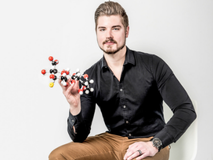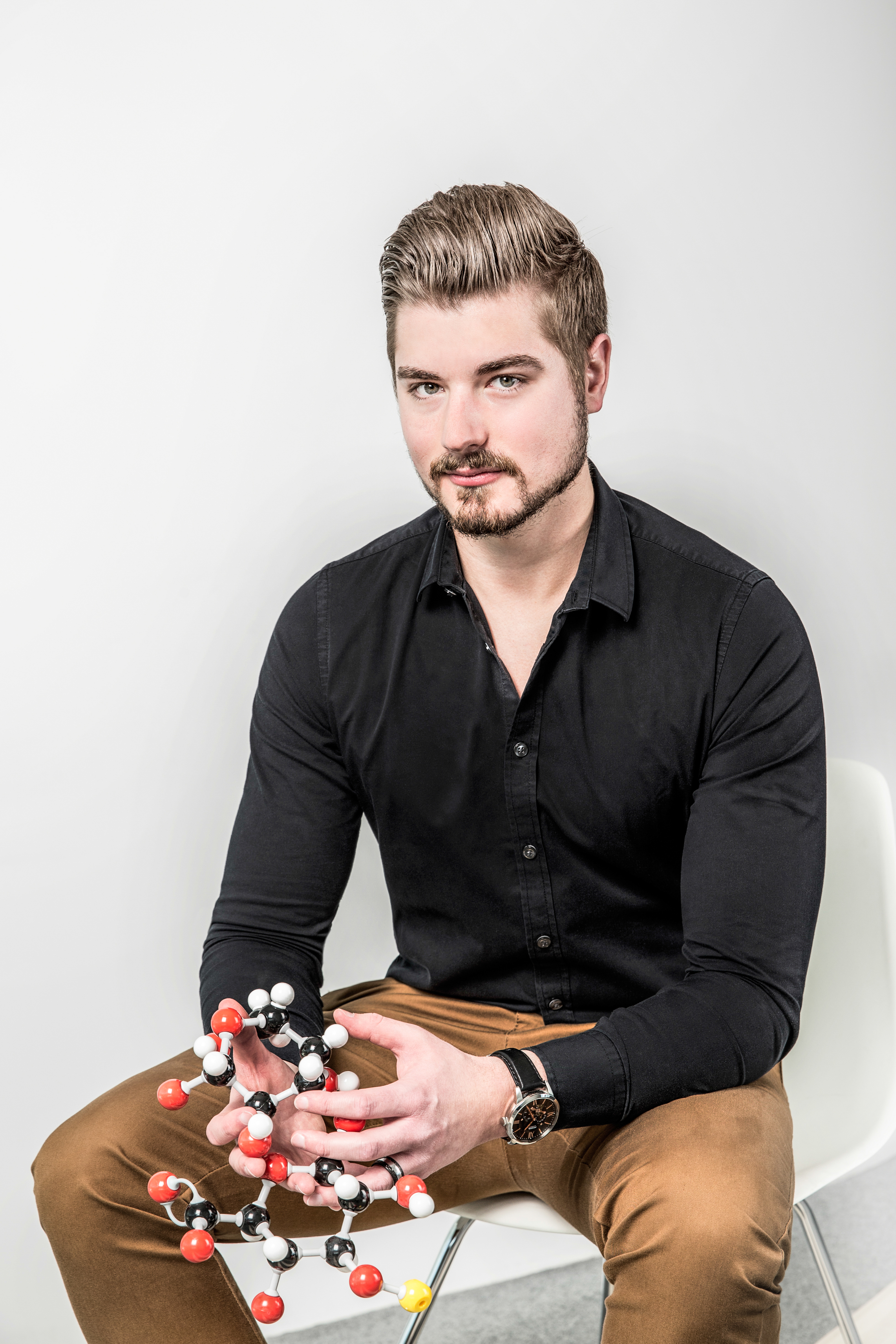Polyneuron Raises CHF 22.5m to Trial Autoimmune Disease Drug
28.03.2019
Polyneuron Pharmaceuticals AG raised 22.5 million francs from investors including Sofinnova Partners and New Enterprise Associates to fund human clinical trials of its drug to prevent rare autoimmune diseases.
 Polyneuron Pharmaceuticals' chief executive Ruben Herrendorff, photographed by Tina Sturzenegger
|
The University of Basel spin-off, which is developing a new class of treatment for anti-MAG neuropathy and other rare-disorders, won Venture Kick and Venture Leaders in 2015. In our interview Polyneuron's CEO Ruben Herrendorff explains how these programs helped set his startup's course from lab discovery to multi-million-franc series A investment.

Photo: Tina Sturzenegger
2015 interview with Ruben Herrendorff
What is Polyneuron's mission and core innovation?
Polyneuron is pioneering a novel therapeutic approach to treat autoimmune diseases of the nervous system, where a patient's immune system erroneously attacks its own body.
The company’s Antibody-Catch™ technology platform enables the design of injectable glycopolymers that are able to selectively eliminate the pathological autoantibodies from the blood, while leaving the rest of the immune system intact.
How will this 22.5-million-investment help achieve your vision?
The financing will allow Polyneuron to advance its lead drug candidate, PN-1007, through the necessary development steps to first-in-human proof of concept in the treatment of the rare nervous system disease, anti-MAG neuropathy. This chronic and disabling disorder is characterized by progressive demyelination and axonal damage of sensory nerves caused by IgM autoantibodies. PN-1007 selectively sequesters and eliminates this autoantibody.
The financing will allow Polyneuron to advance its lead drug candidate, PN-1007, through the necessary development steps to first-in-human proof of concept in the treatment of the rare nervous system disease, anti-MAG neuropathy. This chronic and disabling disorder is characterized by progressive demyelination and axonal damage of sensory nerves caused by IgM autoantibodies. PN-1007 selectively sequesters and eliminates this autoantibody.
Did Venture Kick and Venture Leaders help lay the foundation for Polyneuron's growth?
The Venture Kick program helped us to shape and refine our business case, which allowed us to attract our first investors. Winning the Venture Kick Finale in 2015 was an important early external validation of the business case and also provided us with media coverage, both of which were key for fundraising.
The Venture Kick program helped us to shape and refine our business case, which allowed us to attract our first investors. Winning the Venture Kick Finale in 2015 was an important early external validation of the business case and also provided us with media coverage, both of which were key for fundraising.
The Venture Leaders program in 2015 was a great opportunity to get in touch with a vibrant US start-up scene in Boston and New York, and to meet US-based investors and entrepreneurs. A personal highlight was the visit of the BIO conference in Philadelphia - it was my first partnering conference.
What was your inspiration to found Polyneuron?
What was your inspiration to found Polyneuron?
It was the realization of the significant therapeutic potential of what we had discovered in the lab (laboratory of Prof. Beat Ernst, Dept. of Pharmaceutical Sciences, University of Basel) during 2010 and 2011 that pushed us to start thinking about entrepreneurial aspects of a, back then, research project for a rare autoimmune disorder of the nervous system. We also understood early on that the same approach of designing therapeutic molecules can be applied to other autoimmune disorders of the nervous system and potentially to many other autoimmune diseases. In 2013, when I visited the Venture Challenge semester course and wrote the first business plan, I got an 'entrepreneurial kick' and realized that we need to get into the driver seat and found my own company if we wanted to bring a new therapy to patients.
What is your advice for potential biotech entrepreneurs launching companies in Switzerland today?
I think that the ability to seize business opportunities, to plan and to execute is at the core of entrepreneurship. This ability, I believe, should be coupled to a strong will to succeed, resilience, and the ability to gather and motivate the right team around you.
I think that the ability to seize business opportunities, to plan and to execute is at the core of entrepreneurship. This ability, I believe, should be coupled to a strong will to succeed, resilience, and the ability to gather and motivate the right team around you.
My advice to every biotech entrepreneur would be to start working on securing the crucial resources very early on, mainly human resources, but also infrastructural and financial resources. Gathering companions and mentors around you as fast as possible is so important, because only as part of a team and with the right support can you achieve something meaningful as well as share the joyful and the disappointing moments along the way. Regarding infrastructural resources, it was key for us to have the opportunity to incubate at the Department of Pharmaceutical Sciences of the University of Basel for a few years, which allowed us to continue the R&D activities in an academic environment until the actual spin-off moment came. We still enjoy close interactions with University of Basel research groups, but also other academic groups around the globe, which is absolutely key for us. In terms of financial resources, early funding is not easy to get, but we had the opportunity to get CTI/Innosuisse funding early on and to raise a seed financing round led by EVA Basel, including the Zürcher Kantonalbank and private investors. Later on we also attracted funding from foundations such as the Gebert Rüf Foundation and the Swiss Foundation for Research on Muscle Diseases,
Finally yet importantly, I am convinced that solid science forms the basis of successful life science/biotech start ups – without it there’s no way to succeed.

Photo: Tina Sturzenegger
2015 interview with Ruben Herrendorff


